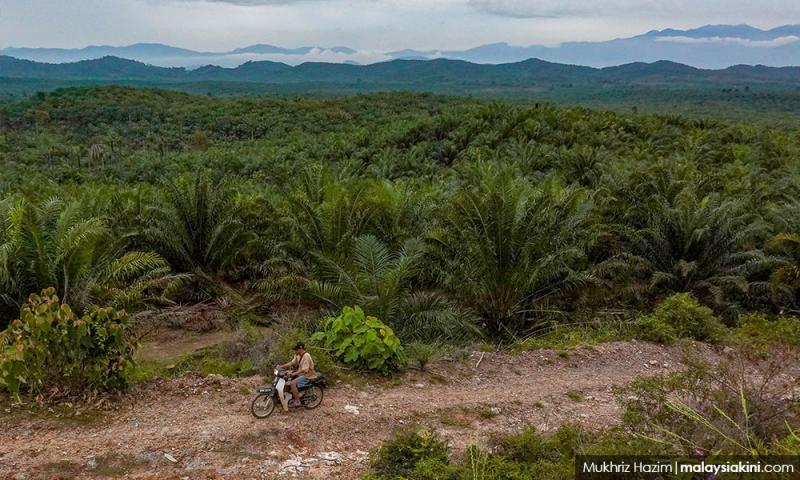LETTER | Agriculture in M'sia must be included in national policies on climate change
LETTER | Malaysia is missing out on one of the hottest topics on fighting climate change.
While the EU, UK and North America are embracing agricultural products from beef to soy as a major stakeholder in the fight to keep global temperatures from spiking, Malaysia has not picked up on this important issue.
This must be corrected quickly as the UK, which is hosting the 2021 United Nations Climate Change Conference (COP26), has laid out world-leading ambitions to reduce its emissions. A big part of the UK plans includes the greening of its agricultural production, which matches the climate ambitions of the EU.
Malaysia may not have the non-agricultural revenues of developed countries to fund greener agriculture but what she does have is grassroots initiatives to turn her agricultural products into a potent force to fight climate change.
As policies to curb climate change strengthen, palm oil, soybean and beef producers cannot count on the expansion of land footprint as researchers have said. The key to sustainable farming is to increase the yields on existing farmlands so that both farms and forests may exist side by side.
Palm oil, as one of the biggest agricultural exports and a much-needed source of foreign revenue, can play a key role for Malaysia at COP26. The sustainability practices put into place by the Malaysian Sustainable Palm Oil (MSPO) scheme will be key to growing the markets in Europe and the UK. But the MSPO may not be enough to meet the requirements of these premium markets as they make new sustainability demands on both their own agricultural products and those that are imported.
Malaysia must match the EU movement to reduce emissions from agriculture. The easiest and least painful pathway is to match their commitment to organic agriculture which removes the emissions of nitrogen fertilisers from Malaysian palm oil.
With half a million smallholders producing food needs and palm oil in Malaysia, this is a force that will bring substantial impact on reducing Malaysia’s emissions from agriculture.
In the palm oil sector alone, an estimated two million hectares of farms are managed by smallholders. Allowing for variables as most Malaysian oil palm smallholdings are mixed cropped; this is still a large area of terrestrial territory that can play a key role in reducing Malaysia’s overall emissions.
How can Malaysia reduce its emissions from palm oil?
By stopping the use of nitrogen fertilisers to the ultimate solution for food and climate change in biofertilisers.
The growing use of nitrogen-based fertilisers for food production is increasing emissions of a greenhouse gas 300 times more potent than carbon dioxide, threatening efforts to keep global warming to internationally agreed limits, scientists warned in a news report from Reuters in October 2020.
But the ultimate solution is not as simple as switching from chemical fertilisers to “organic fertilisers” like compost. Studies done by the US Environmental Protection Agency (EPA) have called out organic fertilisers as a source of greenhouse gas emissions as well.
The winning solution is in biofertilisers, a substance that contains living microorganisms which, when applied to seed, plant surfaces, or soil, colonises the rhizosphere or the interior of the plant and promotes growth by increasing the supply or availability of primary nutrients to the host plant.
This is not some strange laboratory project which is impossible to apply in the real world. The Biofertilizer Manual, which was compiled in 2001 indicated that the sustainability of food crops could be enhanced by bio fertilisers which build up crop resilience and increased harvests without the need to apply fresh rounds of fertilisers continuously.
M'sian agriculture needs to embrace bio fertilisers to fight climate change
Both companies have shown impressive returns to farmers who applied the biofertilisers to various crops including pepper, palm oil and even rubber trees.
With over two million hectares of farmland in Malaysia being managed by smallholders, this would be a great contribution to Malaysia’s commitment to the Kyoto Protocol, not to mention the huge potential to clean up the water quality in rivers and streams.
The most exciting potential for the use of biofertilisers to reduce the emissions of Malaysia’s agricultural products lies in the fact that this is readily available. Pioneers of biofertilisers in Malaysia include companies like BIO AG in Pahang and SOField Agrobio Resources in Sarawak have been helping farmers to increase yields while reducing operational costs and emissions.
The enormous environmental values added to Malaysia’s palm oil through the use of biofertilisers will hopefully be presented globally as yet another sign of how Malaysian agriculture is sustainable.
The views expressed here are those of the author/contributor and do not necessarily represent the views of Malaysiakini.
RM12.50 / month
- Unlimited access to award-winning journalism
- Comment and share your opinions on all our articles
- Gift interesting stories to your friends
- Tax deductable
